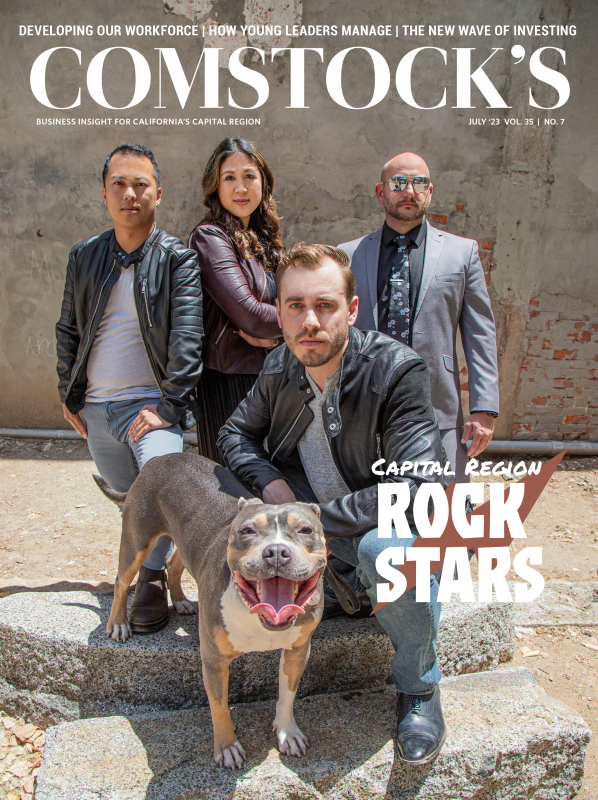The anti-work movement has been growing for a few years, with Reddit’s Antiwork sub hosting 3 million users today. We’ve also seen anti-work crop up in many of the major work themes of the last 2-3 years, including:
- The Great Resignation: In 2021 especially, but also into 2022, quitting rates for many knowledge work jobs (and some blue-collar jobs) were higher than they had been in decades.
- Quiet Quitting: This is the idea that you stay employed but don’t work as hard because the company isn’t paying you or treating you well enough to work at the level they seem to expect.
- Bare Minimum Mondays: Similar to “Quiet Quitting,” it’s an online (mostly TikTok) trend where people do the least possible on Mondays.
- Quit-Toking: Another predominantly TikTok trend where people live-stream themselves quitting their job, or go on camera immediately after with a reflection on quitting.
- Act Your Wage: Not going above and beyond — if you’re paid at “x” rate, do you do enough tasks to fit into “x” wage and all the extra things that employers may demand? You don’t do it.
- Rage Applying: Going on Indeed or LinkedIn “easy apply” jobs and applying to 200-300 in an hour (which is possible to do) just to see if anyone bites, and maybe you find greener pastures elsewhere.
- Increased Unionization: Notably, Amazon employees won a union fight in Queens, New York — and Amazon fights against unionization harder than almost anyone. While unions still are only 7-10 percent of employees, it’s grown pretty fast since 2020.
It’s easy for older generations to look at some of these trends and shake their heads about “kids these days” while mumbling something about their “work ethic.” I myself am not a fan of generational stereotypes (I wrote a book about how dumb they are), but I do think this anti-work trend is interesting.
I recently partnered with Stanford University to study 243 companies and determine what gets results when trying to motivate a group of people. Interestingly, there were no effects for strategy variables (that is, they don’t predict revenue growth). There were, however, significant effects of culture on revenue performance. More specifically, firms with people-oriented cultures have the largest impact on performance. Detail-oriented cultures are significantly and negatively related to revenue growth.
What this study reveals is that culture is the key ingredient for driving revenue growth.
But we’ve done “culture” wrong for a long time. We spent much of the 2010s confusing it with perks — kombucha, waffle stations, jeans on Fridays, nap pods. On the investment side, for much of the post-2008 recession period, there’s been a focus on HR tech. Even in 2022, the sector received $12 billion in venture capital money.
HR tech is a broad label, and to many executives it simply means having a payroll system in place. But many HR tech software services have engagement platforms, employee experience build-ons and the like. Even though we’ve steadily invested more money in this space, engagement scores haven’t budged much in the last 15 years — and in some notable surveys, they’ve gone down. Meanwhile, an overt anti-work sentiment is rising.
Is there a way through all this?
First, you need to pull out and look at the landscape a bit. COVID changed a good deal about work, but most importantly it changed many people’s connection to work. I know 10 or 15 people, anecdotally, who deprioritized work in their lives; I know one who outright quit a six-figure job to do carpentry e-commerce, and another two who quit the workforce entirely — opting into full-time parenthood. There is obviously a discussion about men and women here, and while women often have a bigger challenge to balance professional and personal, it’s also true that middle-aged men are fleeing the workforce in numbers not seen since the early 1980s.
COVID shifted thinking, and our ideological arguments about who was an “essential” worker didn’t help people feel a lot of warm comfort with their employers.
At the same time, the last three months have seen a massive amount of news headlines about AI, automation, machine learning and who or what is coming for what job. Most employees are smart enough to realize that the true gains from automation economically will go to those who own the tools (and the companies), and not necessarily workers themselves. We’ve had a form of wage stagnation for 25 years now, and some employees are rightfully looking at this moment and saying, “Wow, more of this.”
It makes sense that anti-work would be growing. So what now?
John Lennon said, “All you need is love.” What if that’s the answer here? I don’t mean romantic love or even familial love (don’t get me started on leaders who say their team is “like a family” — that’s a huge red flag). I mean agape love — the love of serving with humility. It’s love the way Thomas Aquinas defined it: “to will the good of another.”
Simply put, if you want your employees to care about work, you need a way to connect your people to purpose and activate that purpose with a culture that creates experiences from the heart. What would it look like to abandon what you want and take on service to your people and what their needs are? What would it look like to create a fulfilling experience for your people? Actually, it creates staggering results.
But the anti-work sentiment has shown us that there’s something broken in the connection between employer and employee, and a focus on agape love could be exactly how we should develop this next iteration of organizations.
Dr. Jessica Kriegel is the chief scientist of Workplace Culture for Culture Partners, leading research and strategy in best practices for driving results through culture. She is a Fortune 100 Thought Leader and international keynote speaker as well as author of “Unfairly Labeled: How Your Workplace Can Benefit From Ditching Generational Stereotypes.” Her upcoming book is based on groundbreaking research done with Stanford on how to create an intentional workplace culture that accelerates performance and puts people first.
Stay up to date on business in the Capital Region: Subscribe to the Comstock’s newsletter today.
Recommended For You

The Future of Work
New spaces. New thoughts. New ways to work.
After 16 years in the same office space, and just six months before our lease came up for renewal, my senior VP turned to me and said, “Now that the pandemic is behind us, what do you think about moving to a new office?”

How to Transition From a Large Firm to a Small One
You might lose some perks, but you gain personal control
The pandemic saw millions of workers rethinking their jobs and wanting to strike out on their own. The Census Bureau reported 5.4 million applications to start a new business in 2021. And most U.S. business owners started their own business. There are many reasons to leave a big firm and start a smaller firm, and my experience fell into the most common reason — I wanted more control.

How to Communicate With Your Audience During a Crisis
Responding with empathy, action and clarity
In times of crisis, CEOs, business owners, government officials
and other public figures have a responsibility to effectively
convey important — and sometimes life-saving — information to the
public. Understanding how best to deliver that information could
make or break your reputation and your organization.

How to make the fourth largest economy in the world work for women
Women Are Essential to the State Economy
Last year, the Commission on the Status of Women and Girls invested in women-specific research and produced the California Blueprint for Women’s Pandemic Economic Recovery. Here is some of what they learned.

Look Before You Launch
Before you invest in a new business idea, take advantage of resources designed to help entrepreneurs get started
So you have an idea for a business. Many
entrepreneurs operate under the premise that “if you
build it, they will come.” This is a formula for failure. Of
course you don’t want to fail! So what do you do?




